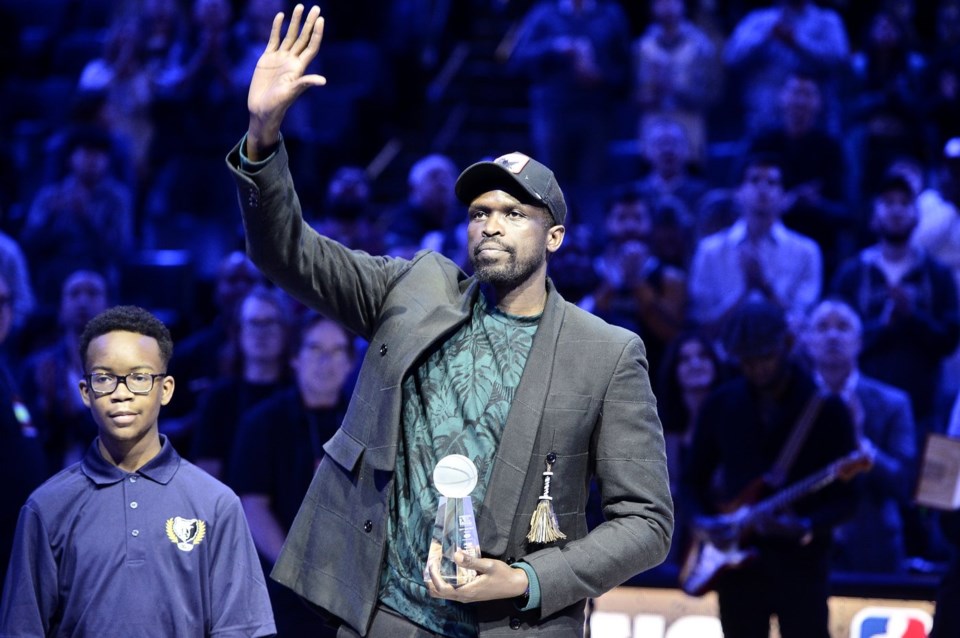Luol Deng was watching his vision coming into focus right in front of him.
It was September 2023, barely six years since South Sudan had played in its first international basketball tournament.
Yet there was Deng, a Sudanese native turned refugee and NBA star, hopping behind a circle of euphoric players inside the South Sudan locker room minutes after it defeated Angola during the FIBA World Cup to finish as Africa’s highest rank team and earn its first Olympic basketball berth.
“Where we going?” Deng chanted repeatedly in a moment captured on social media.
“Paris!” the team shouted back.
Just 13 years after South Sudan emerged from civil war to become an independent nation in 2011, it will mark a milestone next month with its Olympic basketball debut.
It’ll be the culmination of a dream and journey for Deng that has links to his own escape from the ravages of war and introduction to basketball through celebrated Sudanese countryman and fellow former NBA player Manute Bol.
That meeting, along with connections Deng made at a small New Jersey boarding school, helped steer him and the South Sudan team on a path he believes has led to the first of many highlights on the world stage.
South Sudan’s basketball federation president since 2019, Deng thinks the team known as “The Bright Stars” can be a uniting force for a country that’s still finding its way after years of conflict.
“As happy as we are to be there, we really want to compete,” Deng said. “I don’t want people watching us and thinking that we just go there. I want people to see us and see the direction of where I’m trying to take the sport.”
That’s because he knows how far basketball has brought him.
Born in Wau, Sudan, Deng was 3 years old when his father, Aldo, moved with his family to Egypt in the throes of the second Sudanese civil war. It was in Egypt that Deng’s family met Bol, who introduced basketball to them.
They were granted asylum in England, where Deng lived before moving to the United States in 1999 at age 14 after being recruited by New Jersey’s Blair Academy.
Joe Mantegna had just been hired as Blair’s coach. His first two recruits were Royal Ivey, an 18-year-old from New York looking to play a post-graduate year, and Deng, who UConn had steered to Blair hoping he’d eventually follow in his brother Ajou Deng’s footsteps and play for the Huskies.
The day Deng arrived in New Jersey, Mantegna and Ivey were sitting in the stands following a workout.
“Lu came in, in his church shoes, he didn’t have any basketball sneakers,” Mantegna recalled. “We just kind of watched him shoot around. And we both kind of giggled to ourselves that we had something there.”
In those days Mantegna lived next to the freshmen dorm and slowly began to learn Deng’s backstory.
“It was just as we built trust slowly that I heard more and more,” Mantegna said. "Every time we spoke about his story, I learned more.”
Those conversations and the friendship continued after Deng went to Duke and eventually the NBA, where he became a two-time All-Star and played for five teams over 16 seasons.
Then in 2021 Mantegna got a call from Deng with a request. Deng, who was involved with several philanthropic endeavors in South Sudan, wanted to start a basketball program there.
He asked Mantegna if he'd coach.
“He just called me and said, ‘You want to jump on?’” Mantegna said. “I didn’t hesitate. I just said to my wife, ‘I guess I’m going to be spending some time in Africa the next few summers.’”
Mantegna turned down Deng’s offer to be head coach but signed on as an assistant and made a suggestion for the top spot on the bench: Deng’s old teammate, Royal Ivey.
Deng used millions of his own dollars to fund the team in the first two years while the trio slowly built out South Sudan’s roster. They tapped into a stable of players with ties to the country who were playing around the world, including former NBA G-League MVP Carlik Jones and others with NBA experience including Wenyen Gabriel, Nuni Omot and Blair alum Marial Shayok.
They all bought into a vision for the future that Omot acknowledged was hard to see initially.
The first time the team assembled in Sudan they showed up to find a single outdoor dirt court with one rim higher than the other, and no official 10-foot regulation goals.
“A lot of guys are refugees. And we grew up, we moved, so we’ve had the luxuries of having indoor courts and such things,” Omot said. “To go back home and start kind of at the beginning, obviously, we all had a vision of what it could be. It’s just a testament that’s going to show in the future”
South Sudan has risen from 82nd to 33rd in the FIBA world rankings, making it Africa’s second-highest ranked team behind No. 31 Cote d’Ivoire. The road to the medal round in Paris will be tough with The Bright Stars in a group that includes the U.S. and Serbia.
But Omot said the success they’ve had in such a short period of time is emblematic of how fast change is happening in South Sudan.
“What the people will see when they think about our people, they see a lot of nothing but violence, a lot of things that have to do with war,” Omot said. “And for me to be able to put that jersey on and know that people from our country, how much pride and joy they have because of all they’ve seen. It means everything."
___
AP Summer Olympics: https://apnews.com/hub/2024-paris-olympic-games
Kyle Hightower, The Associated Press
